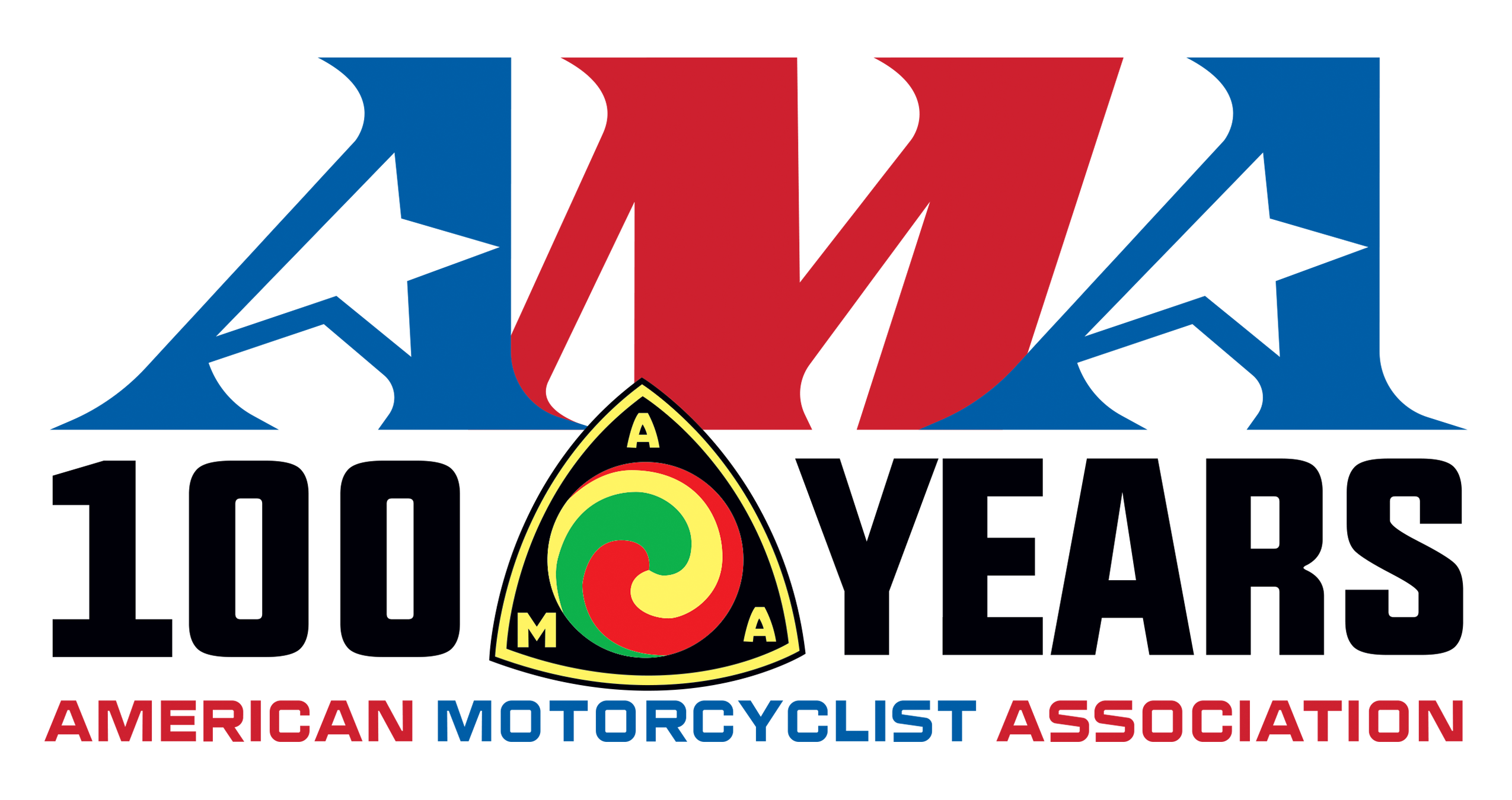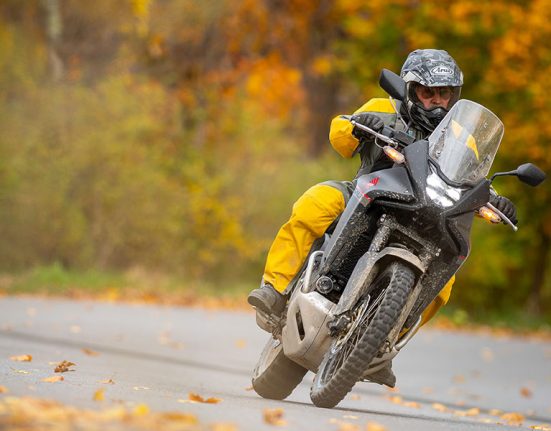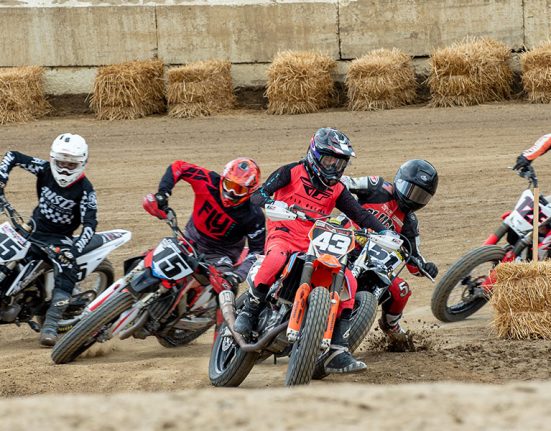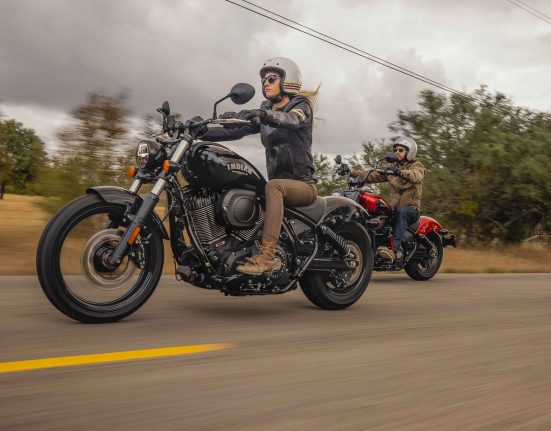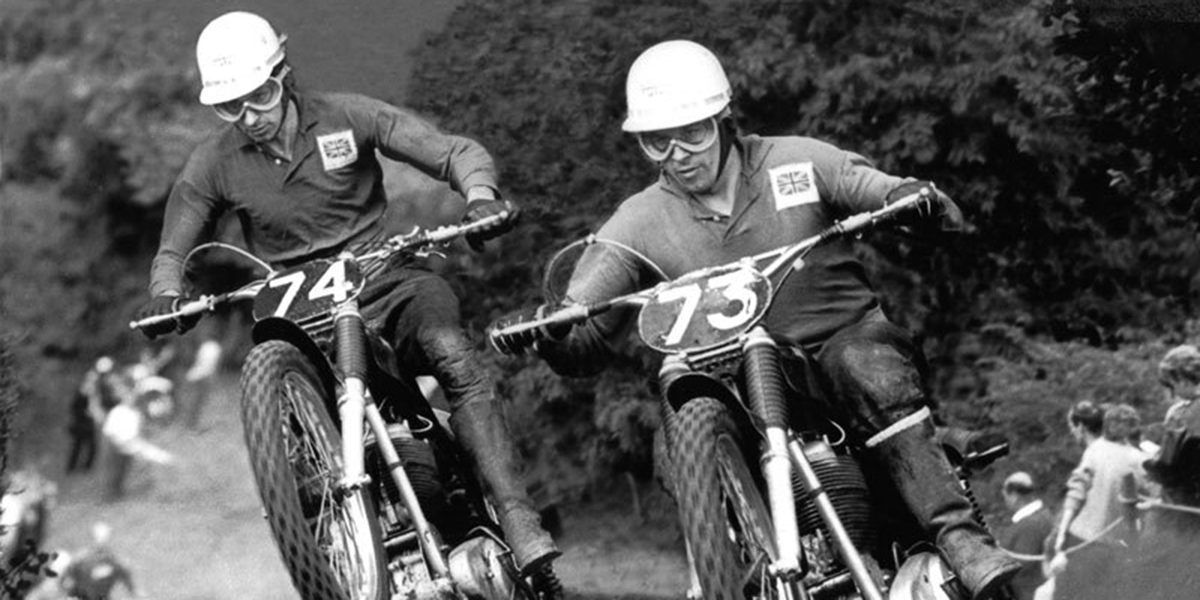Rickman was part of one of the most famous brother partnerships in motorcycle history
PICKERINGTON, Ohio (July 19, 2021) — Motorcycle icon Derek Rickman passed away on July 3 after a short battle with cancer. He was 88.
Derek, born in 1933, along with his younger brother Don, commanded British motocross superiority in the 1960s, produced thousands of their own high-quality and lightweight motorcycle frames, and helped manufacturers with various design improvements for decades.
The two brothers found success as motocross racers in 1960s England, and were soon designing and building their own highly distinctive motorcycle frames. Rickman-framed sportbikes, especially popular in America, were influential to the development of the sport from the late 1960s throughout the ’70s.
The two brothers were heavily influenced by their father’s involvement in the sport, who unfortunately died at an early age, leaving the family’s garage to the two sons.
“We started entering motorcycle competition in the late 1940s,” Derek Rickman told American Motorcyclist in a Hall of Fame interview. “At first we got into trials, and later into scrambles and motocross.”
The Rickmans attained success in motocross as competitors. They both represented Britain in the 1960s in Motocross des Nations. In 1963 and ’64, they had the honor of being on the team together.
“We realized if we were going to get anywhere in the international sport we were going to have to have lighter machines,” Derek said. “We built our own frames and they turned out to be very successful.”
In the 1950s, the Rickmans dabbled in modifying standard BSA motorcycles. They dubbed these machines Metisse — a Gallic expression for a mongrel. The modifications became more and more extensive until, in 1960, they produced their first frame and christened the complete motorcycle the Mark 3, which utilized either a Triumph or Matchless engine.
Rickman motocross bikes became highly prized, and the bulk of them were shipped to America to supply the burgeoning sport of motocross in the 1960s and ’70s. Rickman machines were 30 to 40 pounds lighter than the standard versions and were also beautiful to behold, with striking, nickel-plated, high-quality, large-diameter Reynolds 531 tubing. They also were compact, and eliminated the need for an oil case by the ingenious method of carrying the engine oil inside the frame itself.

BSA in America came to the Rickmans and commissioned them to build 125 and 250cc motocross bikes. They found 250 Montesa and 125 Zundapp engines they could buy and produced prototypes…and BSA America decided to import them. At one point, Rickman was producing nearly 4,000 bikes a year that went mainly to America.
When the British motorcycle industry went bust, the Rickmans found themselves standing as the biggest motorcycle producer in England.
“That was quite amazing,” Derek said. “Especially for two brothers who just started tinkering around in our workshop in the 1950s.”
With their motocross and off-road machine success, the two brothers also built road racers following the urging of a major sponsor. The road racing part of the business really took off in the late 1960s and early 1970s when the Japanese companies began producing big, multi-cylinder motorcycles such as the Honda CB750 and Kawasaki Z1.
“The Japanese produced very good engines, but they put much less attention into their chassis,” Derek explained. “We developed our own frames to accept those new four-cylinder engines. Our kits handled very well as compared to the production models. We also produced kits for Triumph engines, as well.”
The Rickman Honda and Kawasaki, with nickel-plated frames, powerful disc brakes and gorgeous Rickman-made fiberglass fairings, were some of the most beautiful and highly-desirable motorcycles of the 1970s. American motorcycle magazines raved about the handling and designs of Rickman machines.
The Rickman road racers, like the motocross bikes, found great success in competition. A Rickman Triumph ridden by Alan Barnett finished second at the Isle of Man in 1969.
Rickman developed a loyal following and the company earned the Queen’s Award for Industry. At its peak, Rickman employed 130 workers at its shop in New Milton.
Eventually, the market changed for the Rickmans. First, the Japanese vastly improved their motocross machines by adapting many of the concepts the Rickmans pioneered. And beginning in the early 1980s, Japan Inc. also greatly improved sportbike chassis designs.
The Rickmans then diversified, the company producing garden furniture, hospital beds and, later, kit cars using Ford engines. The Rickman brothers sold their company in the mid 1980s.
Derek and Don Rickman were together inducted into the AMA Motorcycle Hall of Fame in 2007.
Look for more coverage of Rickman’s legacy and career in future issues of American Motorcyclist.
